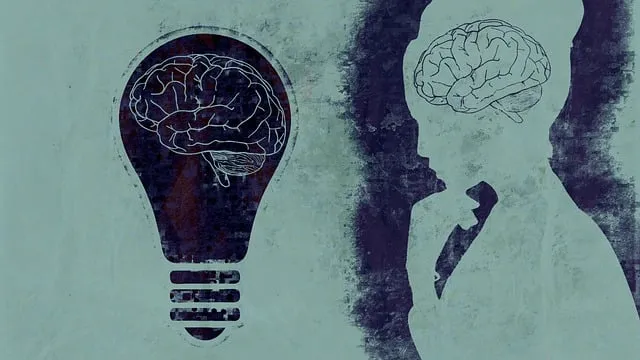The Kaiser Permanente behavioral health center in Northglenn utilizes RFM analysis, Inner Strength Development, and Mental Wellness Journaling to identify at-risk individuals early and provide tailored support for improved mental wellness. They offer comprehensive solutions through Trauma Support Services and Mental Health Education Programs, empowering residents with tools to cope with adversity and enhance emotional well-being. Their strategic approach includes assessing local needs, integrating diverse learning styles, and regularly monitoring KPIs for continuous improvement, ensuring services meet the evolving needs of the community.
Resilience is a vital component of mental well-being, especially in today’s fast-paced world. The Kaiser Permanente behavioral health center in Northglenn has pioneered an innovative approach to building resilience through RFM (Recovery, Flexibility, and Mastery) exercises. This article delves into the significance of RFM in behavioral health, exploring how the Kaiser Permanente Northglenn model enhances resilience. We’ll provide a step-by-step guide to implementing these exercises and discuss methods for measuring success at behavioral health centers.
- Understanding RFM and Its Significance in Behavioral Health
- The Kaiser Permanente Northglenn Approach to Resilience Building
- Implementing Effective Resilience Exercises: A Step-by-Step Guide
- Measuring Success and Continuous Improvement at the Behavioral Health Center
Understanding RFM and Its Significance in Behavioral Health

At the Kaiser Permanente behavioral health center Northglenn, understanding and implementing RFM (Reach, Frequency, and Monetary value) principles is a game-changer for enhancing client outcomes and fostering mental wellness. RFM is a powerful tool that helps identify and engage individuals at risk of disengagement from services, allowing professionals to intervene early and provide tailored support. By analyzing these metrics, the center can pinpoint which clients are most responsive to their programs, ensuring resources are allocated efficiently.
This approach, coupled with Inner Strength Development techniques and Mental Wellness Journaling Exercise Guidance, offers a comprehensive strategy for promoting resilience and anxiety relief. By delving into RFM analysis, the Kaiser Permanente behavioral health center Northglenn is not only navigating the complexities of client behavior but also revolutionizing care delivery to better serve their community.
The Kaiser Permanente Northglenn Approach to Resilience Building

Kaiser Permanente Northglenn takes a holistic approach to resilience building through its behavioral health center, integrating various services designed to support mental well-being. This strategy involves empowering individuals with tools and knowledge to navigate life’s challenges effectively. Their model includes Trauma Support Services tailored to address past traumas, fostering a safe space for healing and growth. Additionally, the center offers Mental Health Education Programs that focus on promoting resilience through cognitive behavioral techniques and stress management strategies.
By combining these initiatives, Kaiser Permanente Northglenn aims to build confidence and strengthen individuals’ ability to cope with adversity. The Behavioral Health Center’s commitment to this comprehensive Mental Health Education Programs Design ensures that residents have access to essential resources for enhancing their resilience and overall mental health.
Implementing Effective Resilience Exercises: A Step-by-Step Guide

Implementing effective resilience exercises at a Kaiser Permanente behavioral health center in Northglenn involves a strategic, step-by-step approach. Begin by assessing the unique needs and challenges faced by your community, aligning exercise design with specific local concerns. The Mental Health Education Programs Design should focus on integrating Emotional Well-being Promotion Techniques that cater to diverse learning styles. For instance, group discussions, interactive workshops, and mindfulness practices can foster a sense of belonging and resilience.
Next, tailor exercises around the Mind Over Matter Principles, teaching individuals how to reframe negative thoughts and cultivate a positive mindset. This could involve cognitive reframing activities, gratitude journaling, or guided visualizations. Regularly monitor progress through feedback mechanisms and adjust exercises as needed to ensure their effectiveness. Engaging community members in this process empowers them with tools to enhance their emotional well-being, creating a more resilient Northglenn.
Measuring Success and Continuous Improvement at the Behavioral Health Center

Measuring Success and Continuous Improvement at the Kaiser Permanente Behavioral Health Center Northglenn is a cornerstone of their commitment to excellence. The center employs robust evaluation methods to assess the effectiveness of resilience-building exercises and emotional healing processes implemented for patients. By tracking key performance indicators (KPIs), such as patient satisfaction, clinical outcomes, and engagement in therapeutic activities, they gain valuable insights into what works best. This data-driven approach allows them to refine their Empathy Building Strategies and Emotional Well-being Promotion Techniques over time, ensuring that services remain tailored to the evolving needs of the community.
Through regular feedback mechanisms and patient surveys, the Kaiser Permanente Behavioral Health Center Northglenn can identify areas for improvement and make necessary adjustments. This continuous improvement cycle is vital in fostering a supportive environment that enhances emotional healing processes. By staying agile and responsive, the center ensures that resilience-building exercises remain dynamic and effective, ultimately contributing to better overall patient outcomes and improved emotional well-being.
The implementation of RFM (Resilience, Flexibility, and Mastery) exercises at the Kaiser Permanente behavioral health center in Northglenn has proven to be a transformative approach. By integrating these strategies, the center enhances its ability to support individuals navigating mental health challenges. The step-by-step guide outlined in this article offers practical tools for any behavioral health facility aiming to foster resilience among their patients. Through measuring success and encouraging continuous improvement, Kaiser Permanente Northglenn sets an example for enhancing patient outcomes and overall well-being within the community.






